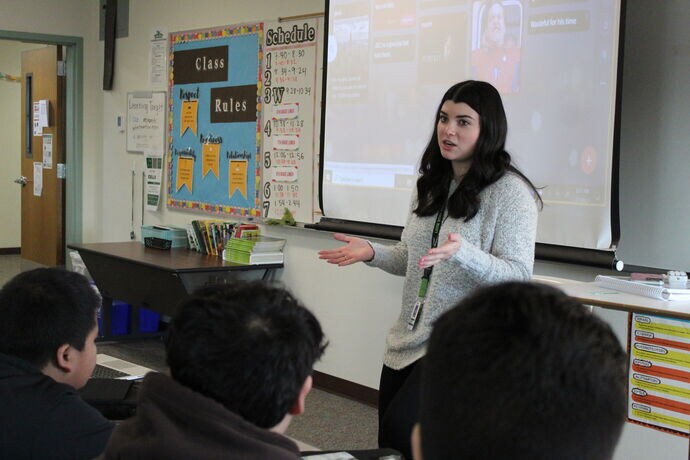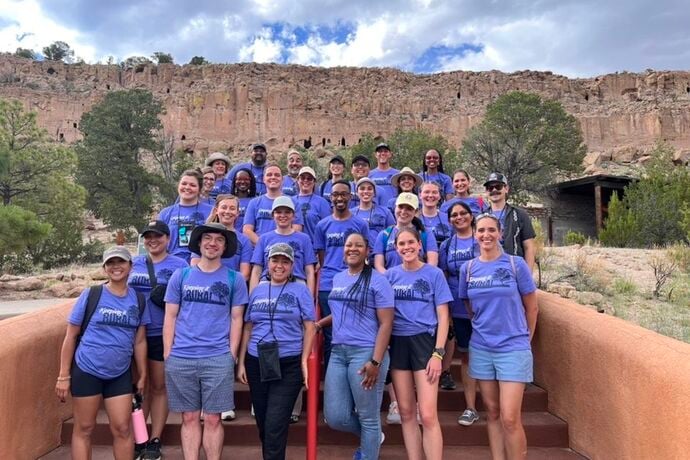Olivia Pecora: Preparing to Lead Schools
February 13, 2023

During her two years as a Teach for America corps member in Nampa, Idaho from 2018-2020, Olivia Pecora never imagined herself moving into school administration.
Though she had thought about school leadership as a possible career path while a student at Villanova University in Pennsylvania, the reality of school life changed her thinking, at least temporarily.
After spending time as a TFA corps member, “I was like, I could never be a school principal, because the job seems crazy and terrible,” she said, looking back with a laugh.
Now, in her fifth year teaching Special Education English Language Arts at Lone Star Middle School, Olivia’s thinking on working in leadership has taken a 180-degree turn. She earned a master’s degree in Educational Leadership from Boise State University earlier this year. It was while doing the internship portion of her program last year that she started seeing herself as a school principal – some day.
“After the internship, I started being able to picture myself as a vice principal and even as a principal someday, hopefully,” Olivia said. She also credited her principal, Greg Heideman, with encouraging her and other teachers to take on leadership roles within the school.

Never one to stand still, since completing her master’s, Olivia has availed herself of two TFA programs that help develop leaders in education. The first was the Rural School Leadership Academy (RSLA), a year-long TFA program that exposes fellows to the particular challenges and opportunities presented by education in more rural settings.
While Nampa has become less rural and more suburban even during Olivia’s five years there, she said a significant number of her students still come from rural portions of the area. So the issues are familiar to her.
The RSLA experience, coming on the heels of her master’s program, was pivotal, Olivia said. “RSLA really appeals to me in the same way as a number of other TFA programs that I've been a part of, in terms of how much they focus on the equity piece of education,” Olivia said. “That's something that I've rarely encountered in any of the other professional development I’ve had beyond TFA.”
During her RSLA year, Olivia had a chance to visit rural schools in New Mexico and North Carolina. Those visits opened her eyes to the unique aspects of rural schools that appealed to her. She said even Nampa, or at least Lone Star, feels like a small, tight-knit community, but truly rural places have even more of that feeling.
This year, Olivia has begun honing her leadership skills by mentoring two second-year TFA corps members, as part of TFA-Idaho’s new mentoring fellowship program. She has found it rewarding to work with second-year teachers, helping them grow into confident professionals.
What Olivia has found particularly gratifying about the mentoring fellowship has been the opportunity to work on the details of the teaching craft with fledgling educators. Unlike both her master’s program and RSLA, which she described as “big-picture,” mentoring is nitty-gritty, feet-on-the-ground work.
She said she has enjoyed the opportunity to “be able to work closely with someone, go into their classroom, see what they're working on, set goals with them and coach them directly.”
So what’s next? Olivia said she is in no hurry to go anywhere. But five years down the road, she said, she could envision herself being an assistant or vice-principal somewhere. A decade from now, she’d like to be a principal.
“That's the tentative plan, at least for right now,” she said.


